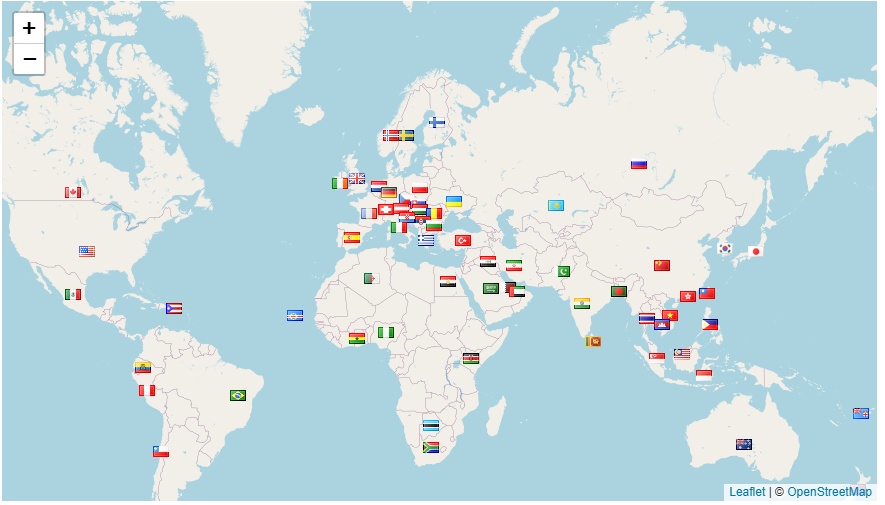The Subjective Meaning and Means of Happiness: Lessons Learned from Qaryah Thayyibah Program
DOI:
https://doi.org/10.70822/jce.vi.72Keywords:
The Subjective Meaning,Means of Happiness, Qaryah Thayyibah ProgramAbstract
Qaryah Thayyibah, which is part of the Maulana Malik Ibrahim State Islamic University program, is in line with the series of baldatun thayyibah expressions, which should be a kind of ideal image tiered from village, city to country. Residents of villages, cities or countries, and especially the Government, also according to Islamic teachings, are obliged to prioritize those who are left behind, to be the first to receive assistance (putting the last first). Qaryah Thayyibah, a team of lecturers and students at the State Islamic University of Maulana Malik Ibrahim Malang, aims to accompany and strengthen movement towards goodness and progress in accordance with their potential and competence. The approach used, participatory community education and development (Community Participatory Education and Development) and type of institutional program. From the activities and self-evaluation of Qaryah Thayyibah participants, a Brief Subjective Scale of Happiness was compiled which contains ten indicators and questions about factors of happiness and well-being, both instrumental and terminal. Based on exploratory and confirmatory factor analysis, it is known that there are three factorial components of people's subjective happiness, namely: the trust factor in disaster, the gratitude factor in grace, and the trust factor in the congregation. Using a sequential exploratory mixed study approach (sequential exploratory mix method), data is being collected in the context of research into the development of the Community's Brief Subjective Happiness Inventory, and the Predictive Validity of Community's Brief Subjective Happiness on Community Objective Welfare, which relies on the results of observations and calculations of fulfilling material-physical needs . It is highly recommended to prioritize community development and development of rural-urban transitional areas, such as Kedungkandang District, not only for the sake of social justice, but also for the future of the city.
References
Rofiqah, Wiyono Bambang Budi, Ramli, Mappiare Andi.,“Practical Guideline of Solution-focused Counseling to Optimize Educational Sustainability and Continuation: A Design Research within Indonesian Context,” The International Journal Of Humanities & Social Studies, (ISSN 2321 - 9203) 2017.
Rofiqah, Rosidi S, Pawelzick Cynthia A., “Personal and social factors of resilience: Factorial validity and internal consistency of Indonesian read,” International Journal of Advanced Psychiatric Nursing 2023; 5(1): 113-120.
Rofiqah., “The Effect of Self-compassion and Support Systems on Flourishing in Students,” ASSEHR 728, pp. 68–76, https://doi.org/10.2991/978-2-38476-032-9_8, 2023.
Fadhila, Chomsatul, Rosidi, Sakban, Sunuyeko, Nurcholis and Rofiqah., “Kegiatan fisik, kegembiraan berolahraga, kebugaran fisik dan ketangguhan pribadi siswa SMA Indonesia,” MULTILATERAL: Jurnal Pendidikan Jasmani dan Olahraga, 23 (4). pp. 282-294. ISSN 2549-1415.2024.
E. Diener and R. Biswas-Diener, “Subjective Well-Being and Happiness,” Annu. Rev. Psychol., vol. 70, pp. 469–498, 2019.
F. A. Huppert, “The State of Well-being Science: Concepts, Measures, and Interventions,” Annu. Rev. Psychol., vol. 65, pp. 719–742, 2014.
C. D. Ryff and B. Singer, “Psychological Well-Being: Meaning, Measurement, and Implications for Health,” Annu. Rev. Psychol., vol. 72, pp. 569–595, 2020.
C. L. M. Keyes, “The Mental Health Continuum: From Languishing to Flourishing in Life,” J. Health Soc. Behav., vol. 43, no. 2, pp. 207–222, 2019.
R. D. Putnam, Bowling Alone: The Collapse and Revival of American Community, Simon & Schuster, 2000.
I. Kawachi and L. F. Berkman, “Social Ties and Mental Health,” J. Urban Health, vol. 78, no. 3, pp. 458–467, 2001.
S. J. H. Biddle and M. Asare, “Physical activity and mental health in children and adolescents: A review of reviews,” Br. J. Sports Med., vol. 45, no. 11, pp. 886–895, 2011.
R. A. Easterlin, “Happiness and economic growth: The evidence,” World Happiness Report, 2010.
R. Inglehart and H.-D. Klingemann, “Genes, culture, democracy, and happiness,” in Culture and Subjective Well-being, E. Diener and E. M. Suh, Eds., Cambridge, MA: MIT Press, 2000.
M. E. P. Seligman, “Positive psychology and well-being: The past and the future,” Am. Psychol., vol. 55, no. 1, pp. 5–14, 2018.
S. Lyubomirsky, K. M. Sheldon, and D. Schkade, “Pursuing happiness: The architecture of sustainable change,” Rev. Gen. Psychol., vol. 9, no. 2, pp. 111–131, 2005.
B. L. Fredrickson, “The role of positive emotions in positive psychology,” Am. Psychol., vol. 56, no. 3, pp. 218–226, 2001.
E. L. Deci and R. M. Ryan, “Self-determination theory: A macrotheory of human motivation, development, and health,” Can. Psychol., vol. 49, no. 3, pp. 182–185, 2008.
S. Lyubomirsky, The How of Happiness: A New Approach to Getting the Life You Want, Penguin Press, 2007.
K. M. Sheldon and L. Houser-Marko, “Self-concordance, goal attainment, and the pursuit of happiness: Can there be an upward spiral?” J. Pers. Soc. Psychol., vol. 80, no. 1, pp. 152–165, 2001.
E. Diener, S. Oishi, and R. E. Lucas, “National accounts of well-being,” Science, vol. 327, no. 5962, pp. 29–31, 2015.
J. F. Helliwell, R. Layard, and J. Sachs, World Happiness Report, Sustainable Development Solutions Network, 2020.
T. B. Kashdan and J. Rottenberg, “Psychological flexibility as a fundamental aspect of health,” Clin. Psychol. Rev., vol. 30, no. 7, pp. 865–878, 2010.
E. Diener, E. M. Suh, R. E. Lucas, and H. L. Smith, “Subjective well-being: Three decades of progress,” Psychol. Bull., vol. 125, no. 2, pp. 276–302, 1999.
A. Sen, Development as Freedom, Oxford University Press, 2019.
M. C. Nussbaum, Creating Capabilities: The Human Development Approach, Harvard University Press, 2011.
E. Diener and R. Biswas-Diener, Happiness: Unlocking the Mysteries of Psychological Wealth, Wiley, 2019.
M. E. P. Seligman, Flourish: A Visionary New Understanding of Happiness and Well-being, Simon & Schuster, 2018.






